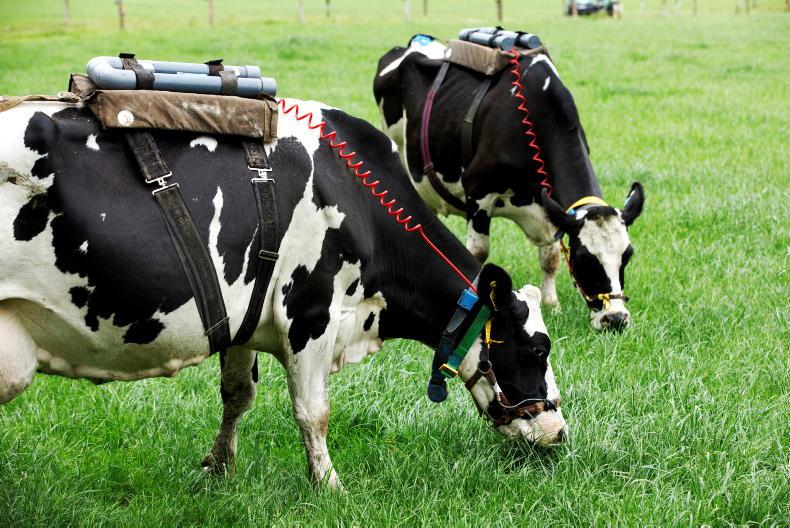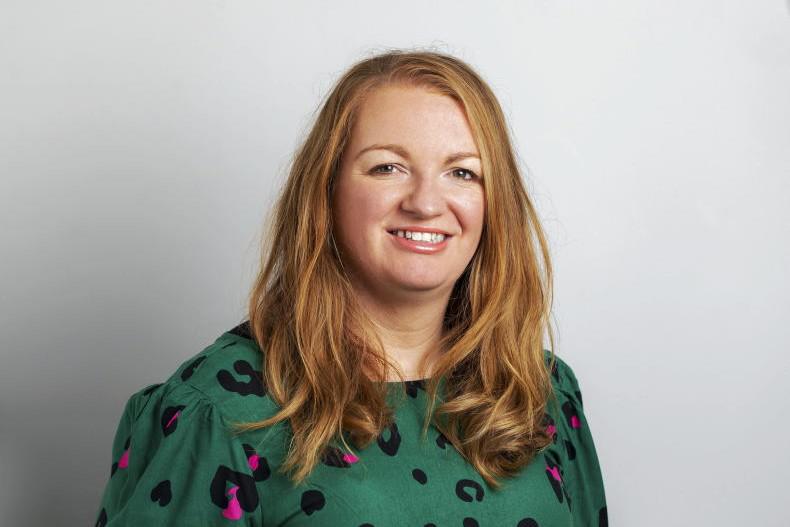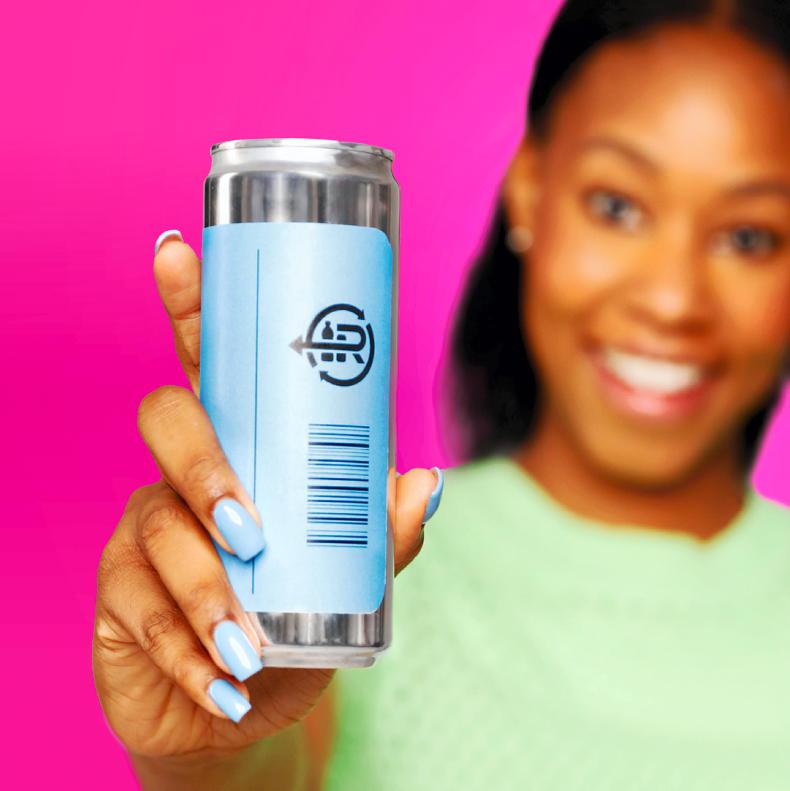Chapter 18 of the Government’s new Climate Action Plan is all about the development of a circular economy. What is a circular economy, you might wonder?
It’s the opposite of what we mainly see today: a linear economy. Linear economies have a starting-off point and an end point – the start is usually a brand new item made from a natural resource, and the end is usually with waste.
For example, we might buy our child new winter boots. When they grow out of them, we notice they are full of holes and so we put them in the bin instead of trying to recycle them.
A circular economy is a closed loop system. Some farms have systems like this – they create waste which they then use as an input, ie they grow crops which they feed to their livestock.
They collect rainwater to help control water usage. It’s about using waste instead of creating it.
What can you do?
Much of the proposed changes in the Climate Action Plan will look to large-scale industry change – businesses will be expected to create solutions to their product or service to ensure it fits within the circular economy goals.
That said, there are ways regular citizens can make positive contributions to the circular economy right now. These include choosing to shop local, supporting local food producers, and local charities – including charity shops.
Charity shops are really the circular economy in action
You may not visit your local charity shop very often and, therefore, may not realise the high level of importance these shops hold for rural communities. Linda Ward is secretary of the Irish Charity Shops Association.
She tells Irish Country Living that rural charity shops are so much more than a place to find a good bargain.
“Charity shops are really the circular economy in action,” she explains. “
In order to solve the climate crisis we need to collaborate with each other and that’s something we really do within our membership. Charity shops, after all, are still businesses, even though the profits go back into the charity.”
Multipurpose
The Irish Charity Shops Association acts as an umbrella network for Irish charities that operate shops as part of their fundraising business.
They help any charity, large or small, with best practise for operations and they help charity shops communicate with and learn from each other.
There is a big social element to the way charity shops operate
“We’ve been working within a circular economy since before it was a thing,” she says. “For small charities, these shops are a way to generate funds and also provide a public face (which can reinforce the services they provide). We help charities get their faces out there to the general public.
“There is a big social element to the way charity shops operate,” she continues. “Providing opportunities for volunteers – particularly in rural areas – can help alleviate rural isolation.
Charity shops have lots of functions; all of which are very much part of the circular economy
“They provide a social outlet and a way of giving back. Also, labour activation schemes allow people distant from the workforce to engage within a safe and sympathetic working environment.
“Charity shops have lots of functions; all of which are very much part of the circular economy.”
How best to support your local charity shop?
Last year, Linda says that thanks to charity shops, the weight of goods diverted from landfills was the equivalent of the entire Dublin bus fleet. She says the best way to support your local charity shop is to shop, donate or volunteer.
“We’ve also started a partnership programme to get larger companies involved and help them become part of the circular economy by partnering with us,” Linda explains. “We don’t just want companies to give us money, we want them to work with us and let us learn from each other.”
Linda works as a sustainability consultant through her brand Retail Renewal and Green Zebra. She helps businesses make practical shifts toward sustainability. See retailrenewal.ie and icsa.ie for more
If you’re planning a New Year’s clean-out, here is a practical guide to donating items to your local charity shop (or elsewhere):
Donate items in good working condition (broken and dirty items will actually cost the charity shop money to dispose of).If donating clothing, ensure the items are washed and don’t have holes. If your clothing is too worn or stained to donate, you can use a local clothing recycling bin.Do not donate duvets, mattresses or pillows.Most charity shops do not accept soft toys.Electrical goods are generally not accepted at charity shops but they can be recycled (visit weeeireland.ie to find out how).Items too big for regular waste collection (like old couches, etc) can be taken away for recycling by special arrangement. Contact your local recycling centre or your local authority for more information on recycling larger items and kerbside pickups. What to do with all of the FOGs (fats, oils and greases) coming from the kitchen this Christmas season?
Fats, oils and greases (like the grease left in a roasting tray after your Christmas morning fry) may seem innocent in small amounts, but once they are poured down drains they harden into what is now known as “fatbergs”. These cause serious damage to plumbing systems and pollute waterways.
The best way to dispose of small amounts of fat is in your food waste bin. If you don’t have one, you can dispose of it in the general waste bin. Larger amounts of household oils can sometimes be brought to your local civic amenity centre.
FOGs are not suitable for home composting bins – only in the food waste bins provided by your local waste collection business.
Read more
Climate Conversations: what to do with all that wrapping paper?
Climate Conversations: citizen engagement
Chapter 18 of the Government’s new Climate Action Plan is all about the development of a circular economy. What is a circular economy, you might wonder?
It’s the opposite of what we mainly see today: a linear economy. Linear economies have a starting-off point and an end point – the start is usually a brand new item made from a natural resource, and the end is usually with waste.
For example, we might buy our child new winter boots. When they grow out of them, we notice they are full of holes and so we put them in the bin instead of trying to recycle them.
A circular economy is a closed loop system. Some farms have systems like this – they create waste which they then use as an input, ie they grow crops which they feed to their livestock.
They collect rainwater to help control water usage. It’s about using waste instead of creating it.
What can you do?
Much of the proposed changes in the Climate Action Plan will look to large-scale industry change – businesses will be expected to create solutions to their product or service to ensure it fits within the circular economy goals.
That said, there are ways regular citizens can make positive contributions to the circular economy right now. These include choosing to shop local, supporting local food producers, and local charities – including charity shops.
Charity shops are really the circular economy in action
You may not visit your local charity shop very often and, therefore, may not realise the high level of importance these shops hold for rural communities. Linda Ward is secretary of the Irish Charity Shops Association.
She tells Irish Country Living that rural charity shops are so much more than a place to find a good bargain.
“Charity shops are really the circular economy in action,” she explains. “
In order to solve the climate crisis we need to collaborate with each other and that’s something we really do within our membership. Charity shops, after all, are still businesses, even though the profits go back into the charity.”
Multipurpose
The Irish Charity Shops Association acts as an umbrella network for Irish charities that operate shops as part of their fundraising business.
They help any charity, large or small, with best practise for operations and they help charity shops communicate with and learn from each other.
There is a big social element to the way charity shops operate
“We’ve been working within a circular economy since before it was a thing,” she says. “For small charities, these shops are a way to generate funds and also provide a public face (which can reinforce the services they provide). We help charities get their faces out there to the general public.
“There is a big social element to the way charity shops operate,” she continues. “Providing opportunities for volunteers – particularly in rural areas – can help alleviate rural isolation.
Charity shops have lots of functions; all of which are very much part of the circular economy
“They provide a social outlet and a way of giving back. Also, labour activation schemes allow people distant from the workforce to engage within a safe and sympathetic working environment.
“Charity shops have lots of functions; all of which are very much part of the circular economy.”
How best to support your local charity shop?
Last year, Linda says that thanks to charity shops, the weight of goods diverted from landfills was the equivalent of the entire Dublin bus fleet. She says the best way to support your local charity shop is to shop, donate or volunteer.
“We’ve also started a partnership programme to get larger companies involved and help them become part of the circular economy by partnering with us,” Linda explains. “We don’t just want companies to give us money, we want them to work with us and let us learn from each other.”
Linda works as a sustainability consultant through her brand Retail Renewal and Green Zebra. She helps businesses make practical shifts toward sustainability. See retailrenewal.ie and icsa.ie for more
If you’re planning a New Year’s clean-out, here is a practical guide to donating items to your local charity shop (or elsewhere):
Donate items in good working condition (broken and dirty items will actually cost the charity shop money to dispose of).If donating clothing, ensure the items are washed and don’t have holes. If your clothing is too worn or stained to donate, you can use a local clothing recycling bin.Do not donate duvets, mattresses or pillows.Most charity shops do not accept soft toys.Electrical goods are generally not accepted at charity shops but they can be recycled (visit weeeireland.ie to find out how).Items too big for regular waste collection (like old couches, etc) can be taken away for recycling by special arrangement. Contact your local recycling centre or your local authority for more information on recycling larger items and kerbside pickups. What to do with all of the FOGs (fats, oils and greases) coming from the kitchen this Christmas season?
Fats, oils and greases (like the grease left in a roasting tray after your Christmas morning fry) may seem innocent in small amounts, but once they are poured down drains they harden into what is now known as “fatbergs”. These cause serious damage to plumbing systems and pollute waterways.
The best way to dispose of small amounts of fat is in your food waste bin. If you don’t have one, you can dispose of it in the general waste bin. Larger amounts of household oils can sometimes be brought to your local civic amenity centre.
FOGs are not suitable for home composting bins – only in the food waste bins provided by your local waste collection business.
Read more
Climate Conversations: what to do with all that wrapping paper?
Climate Conversations: citizen engagement









SHARING OPTIONS